Excerpted from Kaitlyn Greenidge’s We Love You, Charlie Freeman, a finalist for the Center for Fiction First Novel Prize.
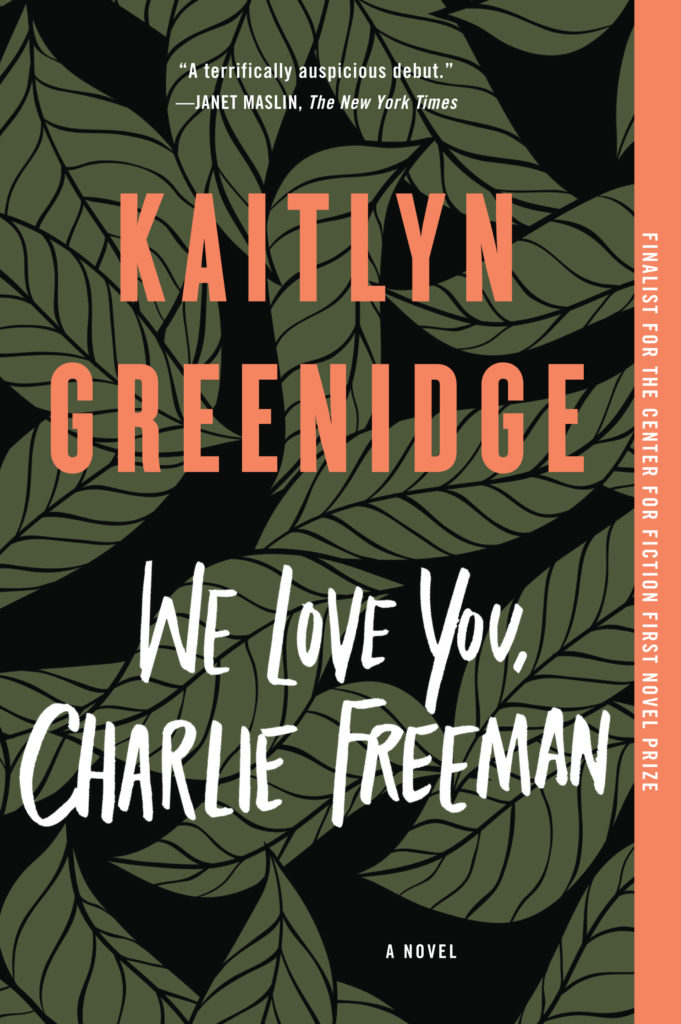
Charlie lived behind a door in the living room. He had a large, oval-shaped space with low ceilings and no windows and no furniture. Instead, there were bundles of pastel-colored blankets heaped up on the scarred wooden floor. Even from where I stood, I could tell the blankets were the scratchy kind, cheap wool. The room was full of plants— house ferns and weak African Violets and nodding Painted Ladies. “They’re here to simulate the natural world,” Dr. Paulsen told us, but I thought it was an empty gesture. Charlie had never known any forests and yet Dr. Paulsen assumed some essential part of him pined for them.
Charlie sat beside a fern. A man knelt beside him. “That’s Max, my assistant,” Dr. Paulsen said.
Max was wearing jeans and a red T-shirt, his lab coat balled up on the floor. He was pale, with messy red hair. He was trying to grow a beard, probably just graduated from college a couple years earlier.
In front of us now, Charlie had gotten hold of Max’s glasses and was methodically pressing his tongue against each lens. Max tried to coax the glasses away but every time he got close, Charlie only bent forward and licked him, too, all the while looking Max in his small brown eyes. Max broke some leaves off the fern, ran them around Charlie’s ears and under his chin, distracting him.
“They’re playing,” Dr. Paulsen explained.
But it seemed more like a very gentle disagreement. Charlie shook his head at the leaves but stayed doggedly focused on tonguing Max’s glasses.
“Max,” Dr. Paulsen called, and he squinted and waved. He picked up Charlie and brought him to us.
As he came closer, Charlie let the glasses hang loose in his hands and he craned his neck toward Dr. Paulsen. Now he looked like a baby. Taped around his waist was a disposable diaper. A few of his stray hairs were caught in the tape’s glue, and he kept dipping his fingers under the rough plastic hem, trying to worry them loose.
My father went to him first. He gently rubbed the top of Charlie’s head, not wanting to scare him. Charlie flinched and my father moved away. Next came Callie, who smiled and smiled, trying to get Charlie to bare his teeth back, but he wouldn’t do it. Then it was my turn.
I reached out my hand to touch him. I thought he would be bristly and sharp, like a cat, but his hair was fine, so soft it was almost unbearable. I could feel, at its downy ends, the heat spreading up from his skin beneath. I pulled my hand away quickly. The scent of him stayed on my fingers, old and sharp, like a bottle of witch hazel.
Charlie yawned. His breath was rancid, like dried, spoiled milk. Later, when he got used to us, he would run his lips up and down our hands so that all of our skin, too, smelled like Charlie’s mouth and the hefty, mournful stench of wild animal.
My mother was the last to hold him. She was crying and she said through her tears, her hands shaking as she reached out to touch him, “Isn’t he beautiful?”
I wanted to say something snide. I wanted to say what I had been telling her since she told us about this experiment: that this was crazy, that she was crazy, that it would never work. I wanted to sign bullshit. But I looked into my mother’s face, wet and wide open with joy, and I couldn’t help myself.
“Yes” I told her, “he’s beautiful.”
***
Dr. Paulsen stayed for dinner, but none of us even pretended to eat. We were all watching my mother and Charlie. She sat at the head of the table, Charlie on her lap, a baby bottle in her hand, trying to get him to drink. She kept her face bent close to his, her chin butting the end of the bottle.
Charlie spit the nipple out once, twice. Each time he rejected it, Dr. Paulsen’s hands rose up as if she wanted to push it back in his mouth herself. My mother only saw Charlie. She refused to be discouraged. The fifth time, he took it. With a loud, rude swallow he began to eat. He drank until the little plastic bag inside crumpled down on itself. He loved the bottle so much he wouldn’t give it up until my mother rolled a piece of lettuce and held it to his mouth. He parted his lips long enough for her to pull his empty away.
Dr. Paulsen studied them. She turned to my father. “You’re ready to begin teaching at Courtland County High?”
“Yes,” he said. “Especially because Charlotte’s going there, too. She and I will help each other—you know, find our seat in the lunchroom and make friends and all that. Maybe we can even share a locker.”
But Dr. Paulsen didn’t laugh. She was watching my mother and Charlie again. We all were. “And how do you think you’ll like teaching at Charlotte’s school?” she repeated.
My mother looked up. “It’s getting late for him to be awake, isn’t it?”
“I suppose you’re right,” Dr. Paulsen hugged each of us good-bye. She patted Charlie quickly on the head. At the front door she stopped, turned. “He likes another drink before bed. Make sure to sign it to him, tell him what you’re doing.”
She took a step backward, still watching Charlie. But he had set her aside, was concentrating on twining his fingers through my mother’s hair.
When Dr. Paulsen was gone, my mother told us it was time for bed.
Our first luxury at the Toneybee: Callie and I got separate rooms. Hers was at one end of the hall and mine was at the other.
I made it halfway to my room before Callie ran up behind me.
“I can’t find my pajamas,” she said, breathlessly.
“So?”
“So, can you help me find them?”
“I have to put mine on first.”
“That’s okay. I’ll come with you.”
In her room, we were shy with each other. Callie tried to hide herself while she changed. When we were both finished, I began to leave, but she caught my hand.
“Well, what is it?”
“Shouldn’t we say good night to them?” Callie asked.
“I don’t want to,” I said, and regretted it.
“Why?”
“They should have stayed with us, not Charlie.”
“We’re too old for that.”
“That doesn’t matter. It’s our first night here.”
“They asked us to say good night,” Callie still held my hand. She shuffled her feet back and forth over the marble floor and we both listened for a bit to the unfamiliar sound.
“I feel bad not saying good night to them,” Callie said finally.
I sighed. “Fine. We’ll do it. Come on.”
When we got to our parents’ room, they were already in bed. In the soft glow from the lamp on the nightstand my father sat propped up on a bank of the Toneybee’s pillows, his glasses off, a book open on his lap. My mother was already curled up beside him. It was only when we got to the edge of the bed that we saw Charlie lying in the space between them.
My mother said, “This is a onetime thing.”
Callie leaned forward to kiss them good night. She bent toward my mother but just as her lips brushed her cheek, Charlie lifted one thin finger and swatted it hard across Callie’s face. She jerked back, surprised.
“It’s okay. You scared him, that’s all,” my mother explained.
Callie nodded, tried to smile. It was special to be touched by Charlie, even if it was a blow. “Good night,” she called to Charlie, who kept his finger crooked above his head, a warning.
I took Callie’s hand and we turned and started down the hallway back to her room. We were halfway there when we heard it. First it sounded like something in a cartoon—“hoo hoo hoo”—too silly to be real. Then a wheeze. Then a wail, so low, so long, so hollow, that it sounded like the most sorrowful sound in the world. It was a very old sound, something that had welled up from a deep and hidden place to whip and sting the world. The sound suddenly broke, left a jagged stillness that was worse than the crying. I held my breath. It was a relief when it started up again.
Callie and I hurried back to our parents’ room.
When we got there, all the lights were on. In the glare of the overhead lamp I saw Charlie cling first to my mother’s nightgown and then to the sheets of the bed. He arched his whole body and then flattened himself over and over again.
My mother knelt beside him on the bed, trying to get her hands on the small of his back, on his arms, anywhere, but he wouldn’t be still. With his mouth that wide open, I could see all the way down his throat, maybe almost to his heart, to something red and shaking.
My mother was saying over and over again, “Please, sweetheart, please love, please.” My father was out of bed, standing behind her, hands hovering above her. “All right now, all right now,” he murmured.
But Charlie kept crying. He would not be comforted by any words they said.
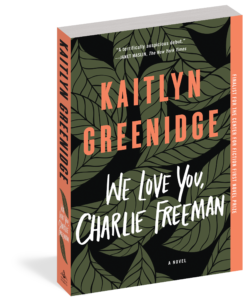 About the Book:
About the Book:
“Smart, timely and powerful . . . A rich examination of America’s treatment of race, and the ways we attempt to discuss and confront it today.”—The Huffington Post
The Freeman family—Charles, Laurel, and their daughters, teenage Charlotte and nine-year-old Callie—have been invited to the Toneybee Institute to participate in a research experiment. They will live in an apartment on campus with Charlie, a young chimp abandoned by his mother. The Freemans were selected because they know sign language; they are supposed to teach it to Charlie and welcome him as a member of their family. But when Charlotte discovers the truth about the institute’s history of questionable studies, the secrets of the past invade the present in devious ways.
The power of this shattering novel resides in Greenidge’s undeniable storytelling talents. What appears to be a story of mothers and daughters, of sisterhood put to the test, of adolescent love and grown-up misconduct, and of history’s long reach, becomes a provocative and compelling exploration of America’s failure to find a language to talk about race.
“A magnificently textured, vital, visceral feat of storytelling . . . [by] a sharp, poignant, extraordinary new voice of American literature.”—Téa Obreht, author of The Tiger’s Wife
Buy the Book
Amazon | B&N | Indiebound | Workman

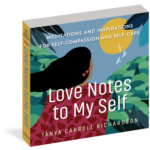
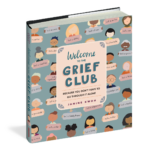
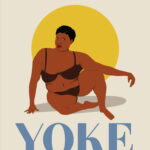
No Comments